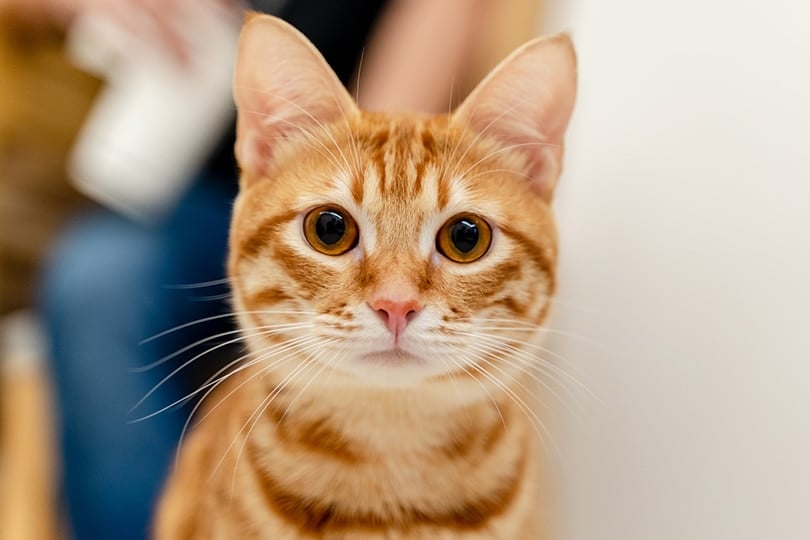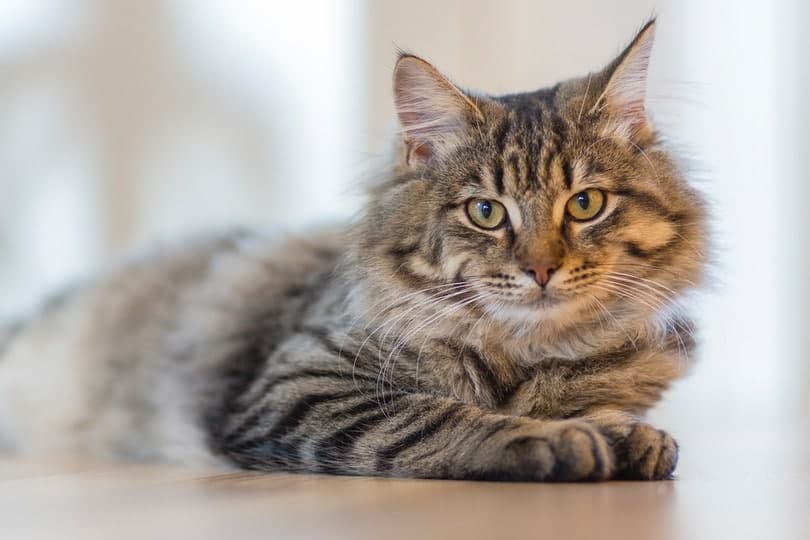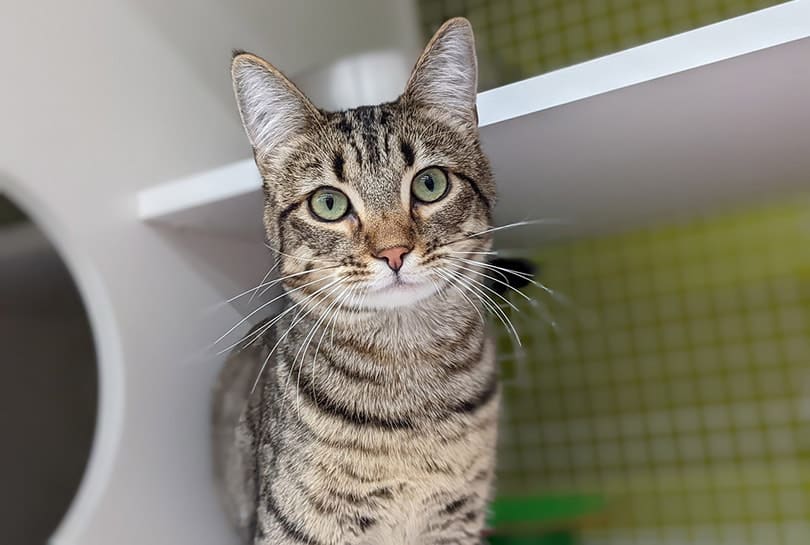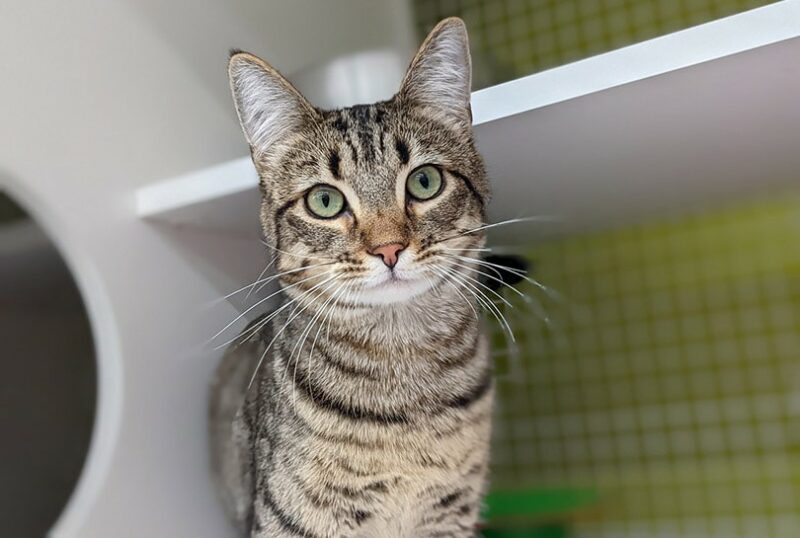Just like people, animals have markings and colors that make them unique. Animals of all kinds have interesting coat patterns, from zebras and cheetahs to toucans and giraffes. Scientists have studied why animals look like they do and have some interesting theories.1
Housecats are especially known for having a variety of colors and patterns on their coats. People have long questioned why cats have an M on their foreheads. Even the ancient Egyptians pondered this interesting coat pattern.
As it turns out, the mysterious cat “M” isn’t at all mysterious. Today, we’re explaining why that is and discussing a few favorite legends of the cat M. In short, the M is simply part of the tabby cat color pattern.
Why Some Cats Have an M on Their Foreheads
The forehead M is part of the tabby coat patterning. Some Maine Coon kitties also have an M, but it’s primarily a tabby coat pattern. There isn’t a special reason for it.
Many people think a tabby cat is a breed, but it’s a coat pattern. There are five different kinds of tabby coat patterns that you’ve probably seen, and they all have the classic M pattern.
- Classic tabby: Also known as blotched or marble, this tabby coat pattern is the most common. Cats with this pattern have circular swirls, including a bullseye design and M on the forehead.
- Ticked (agouti) tabby: Ticked tabbies may be difficult to identify as a tabby since the patterning on their body is broken and doesn’t look like tabby patterning. The coat pattern usually consists of agouti hair, but their legs and face feature classic tabby lines, including the tabby M.
- Mackerel (stripped) tabby: Mackerel tabbies have dark, thin vertical stripes extending down their bodies. These lines extend from a long stripe down the middle of their back. It makes the pattern look like a fishbone, hence the name. The stripes are also around their eyes. It’s believed this is the authentic tabby patterning since it resembles an African wildcat’s coat.
- Spotted tabby: Spotted tabbies have a coat pattern similar to the classic or mackerel tabby, except they have small or large spots instead of stripes.
- Orange tabby: The orange tabby coat pattern looks like any of the above patterns, except the coat is orange instead of grey, brown, or black. Most orange tabbies are male- 80%, to be exact!
There’s no specific reason why tabby cats have the letter M on their forehead. It’s a marking that makes them unique from other coat patterns. All we have to do is appreciate this interesting marking!


Legends About the Feline M
Before scientists could solve the mystery of the cat M, a few legends had their idea of why tabbies had this distinctive feature.
The Mark of the Moon
The ancient Egyptians called cats Mau, most likely because of cats’ meow, but they had other reasons. Mau means “seeing” or “light,” and ancient Egyptians associated this with the reflection in the cat’s eyes, particularly with the moon’s light. The legend states cats were given the M to mark their relationship with the moon.
Mohammad and Muezza
The Islamic religion tells a tale of Mohammad and his beloved cat, Muezza. The story tells of a sneaky snake that slithered into Mohammad’s robe, unknown to Mohammad. The cat saw the snake and killed it instantly, saving Mohammad’s life. Mohammad was so grateful for his feline protector. He marked Muezza with the letter M on her forehead to remind the world to love and respect cats.
Mary and Jesus
A tale about Mary, the mother of Jesus, tells that Jesus shivered in his manger during the cold night. Mary tried everything she could to keep Jesus warm. She added more hay into the manger, gave him more blankets, and asked all the animals to gather around him for warmth. Still, nothing worked.
Finally, a cat jumped into Jesus’ manger and warmed him. Mary rubbed the cat’s face out of gratitude, leaving the mark of the M.

Final Thoughts
The legends of the cat M are entertaining and speak highly of how loyal cats really are to their owners. Regardless of what any legend or science says about cats, they will always have some mystery to them. Although it doesn’t mean anything specific, cat people who own tabbies may have some theories for what the M means on their cat.
Featured Image Credit: Sunshineshook, Pixabay












